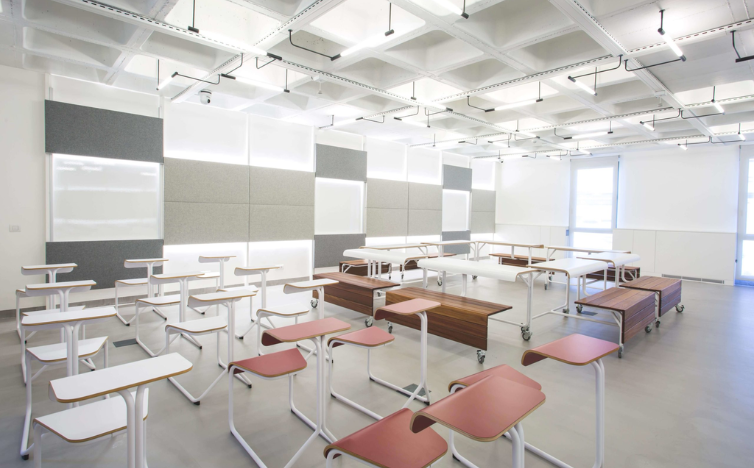Classroom acoustics play a crucial role in how well students absorb information. Poor sound quality can lead to distractions, difficulty understanding speech, and reduced academic performance. Studies show that optimal acoustics enhance focus, comprehension, and retention, making them essential for effective learning in classrooms.
Effects of Poor Acoustics on Learning

1. Reduced Speech Clarity
- Background noise and echo make it harder for students to hear teachers clearly.
- Students with hearing impairments or language barriers struggle even more.
2. Increased Cognitive Load
- When students strain to hear, their brains work harder to process sound, leaving less mental energy for learning.
- This leads to faster fatigue and lower concentration levels.
3. Lower Academic Performance
- Research links poor classroom acoustics to lower test scores, especially in reading and language-based subjects.
- Teachers may need to repeat instructions, slowing down lessons.
How Good Acoustics Enhance Learning
1. Better Focus & Engagement
- Clear sound reduces distractions, helping students stay attentive.
- Improved speech intelligibility ensures instructions are understood the first time.
2. Supports All Learners
- Children with hearing difficulties, ADHD, or auditory processing disorders benefit significantly.
- Non-native speakers can follow lessons more easily.
3. Encourages Participation
- Students feel more confident asking questions and engaging in discussions when they can hear clearly.
Improving Classroom Acoustics
1. Sound-Absorbing Materials
- Install acoustic panels, carpets, and ceiling tiles to reduce echo.
- Use soft furnishings like curtains and upholstered furniture.
2. Proper Room Design
- Avoid high ceilings and hard surfaces that cause reverberation.
- Arrange seating to minimize distance between teachers and students.
3. Noise Control Strategies
- Place classrooms away from high-noise areas (gyms, cafeterias).
- Use white noise machines to mask disruptive sounds.
Call us: Contact DeSound Soundproofing Expert in Dubai For Soundproofing: +971 56 231 4204
Conclusion
Classroom acoustics have a direct impact on learning outcomes. By optimizing sound quality, schools can create an environment where all students—regardless of hearing ability—thrive academically. Investing in acoustic improvements leads to better focus, comprehension, and overall educational success.

